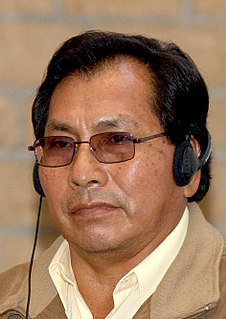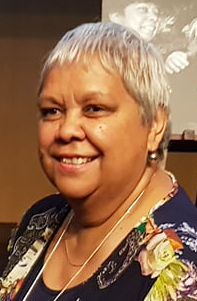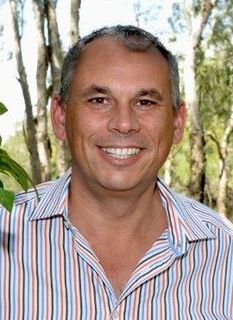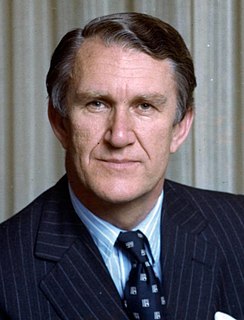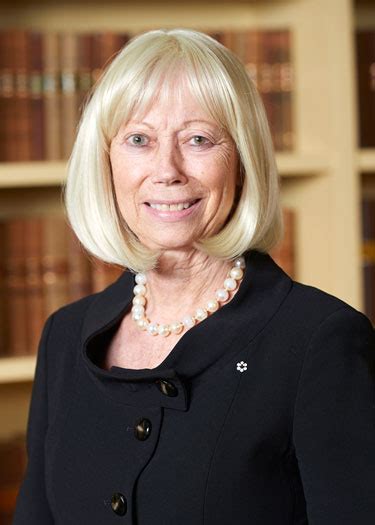A Quote by Rigoberta Menchu
Racism in our countries is a fact in that the indian is not allowed to be a politician or aspire to being head of state. It has reached the point that 99% of the indigenous women have not gone to school. The indigenous are condemned to live in a situation designed to exterminate them. They receive a pittance of a salary, they neither speak nor write the language, politics dictates their situation. Is this slavery? I don't know what it's called. It is not the same as before because we are in modern times.
Quote Topics
Related Quotes
As people who are women, who are Indigenous and live on Indigenous lands, we know, and this is something I understand the older I get, that they don't visit the same way the postman may visit but they do visit. They visit in ways that our modern society often disregards and considers immaterial or unreal.
We are now facing a difficult situation in Peru, where there are attempts to cut back the territorial rights of the indigenous peoples, including moves to divide, fragment and privatise our communal organisations. Now more than ever, it is a matter of urgency for us to consolidate our own indigenous alternatives for development.
We have reached a pivotal time in Indigenous affairs when for the first time, national attention is being paid to the horror of Indigenous family violence in this country. For the first time, an Australian Prime Minister has held a summit in the national capital to listen to concerns and ideas on this issue from a group of Indigenous leaders.
For Indigenous Australians, equal rights and citizenship have not always translated into full participation in Australian society. All Indigenous Australians have only been counted in the census since the 1967 Referendum. Even so, State protection and welfare laws continued to control the lives of Indigenous Australians and denied them equal rights, well into the 1970's.
We must point out that in what concerns its material the event is not a miracle. What I mean is that what composes an event is always extracted from a situation, always related back to a singular multiplicity, to its state, to the language that is connected to it, etc. In fact, so as not to succumb to an obscurantist theory of creation ex nihilo, we must accept that an event is nothing but a part of a given situation, nothing but a fragment of being.
If we are too busy, if we are carried away every day by our projects, our uncertainty, our craving, how can we have the time to stop and look deeply into the situation-our own situation, the situation of our beloved one, the situation of our family and of our community, and the situation of our nation and of the other nations?
I write a lot of songs about being in love, how beautiful women are but I've definitely experienced that other side of love where you're in a situation where you love a girl so much but you just know for a fact that she doesn't love you the same. "Grenade" is the extreme way of saying "I'd do anything for you and why can't I feel you would do the same for me?


